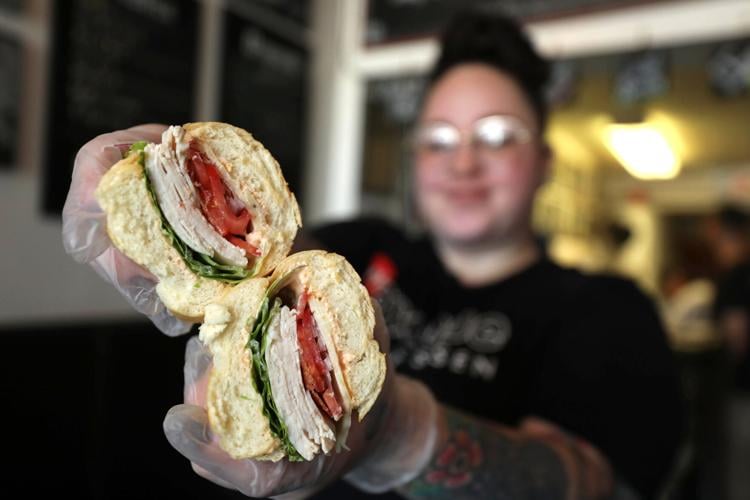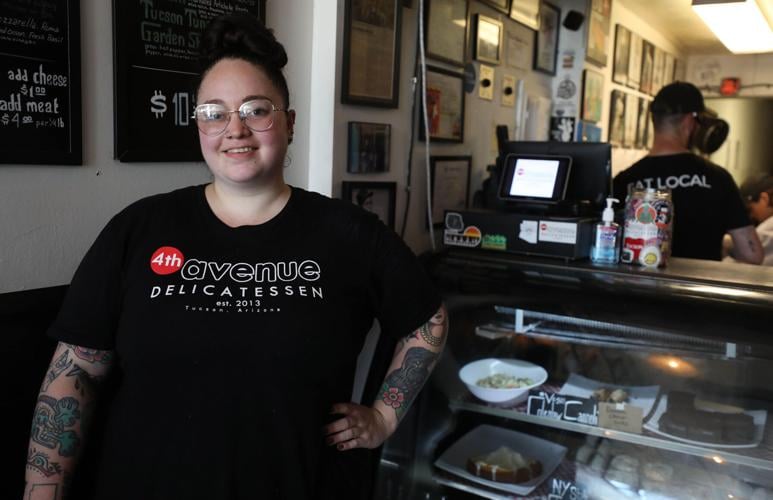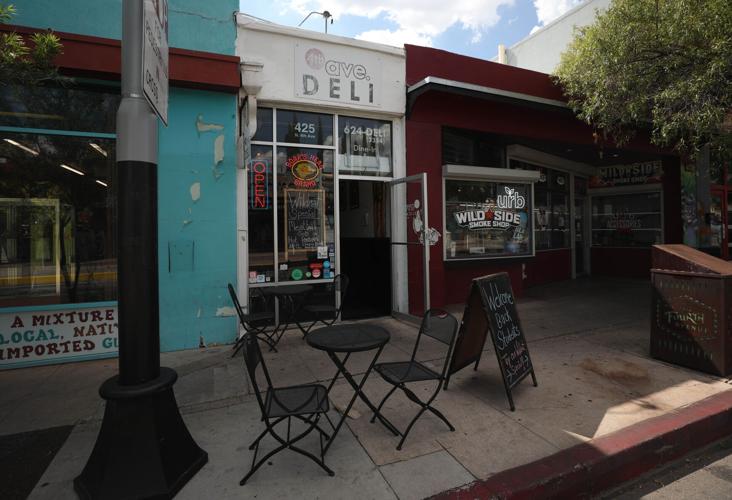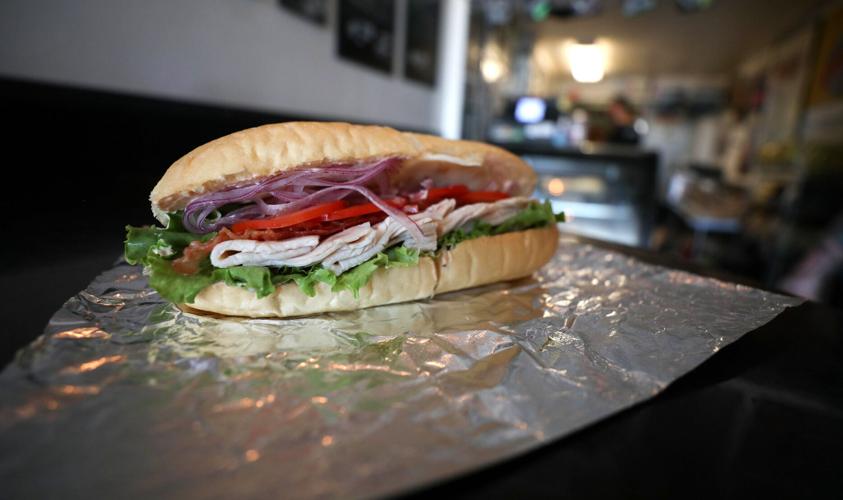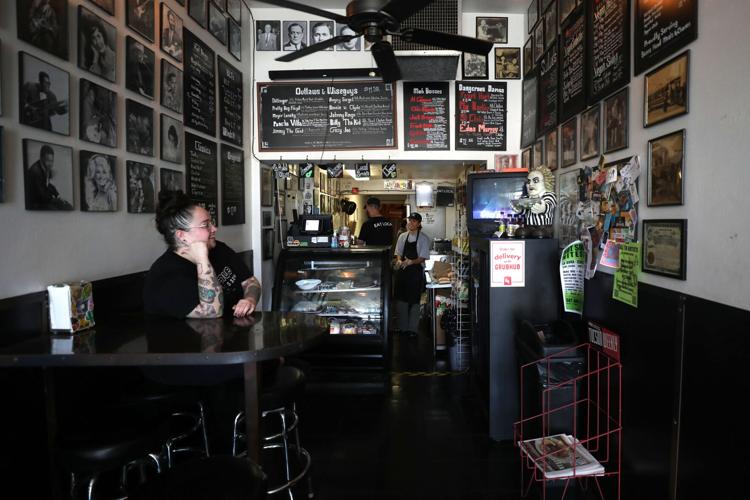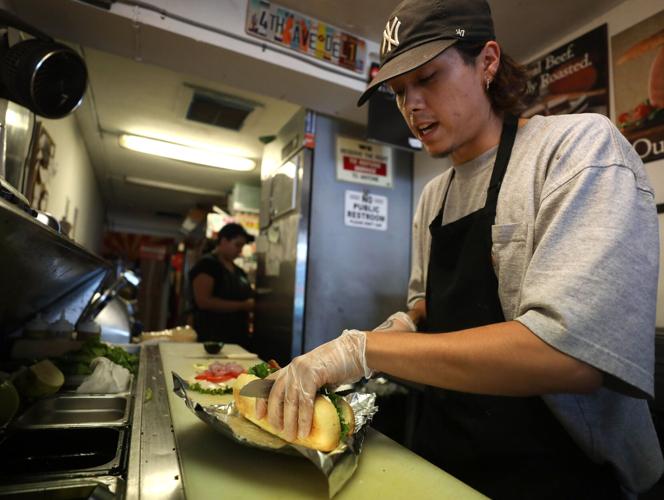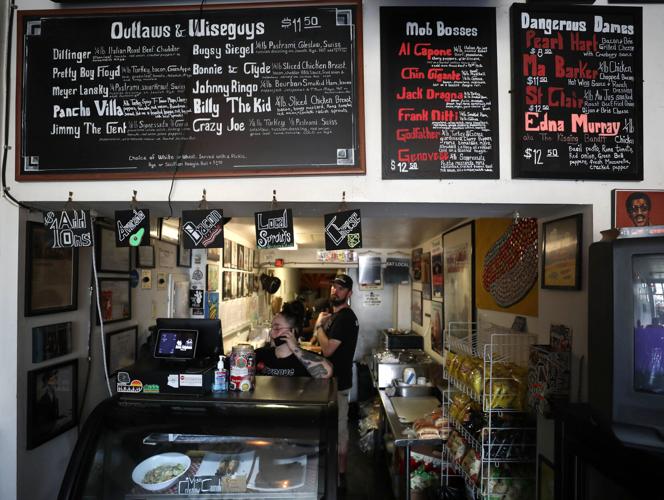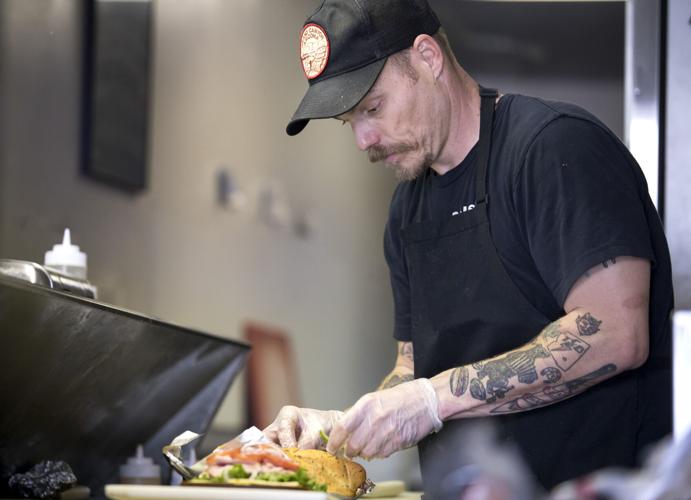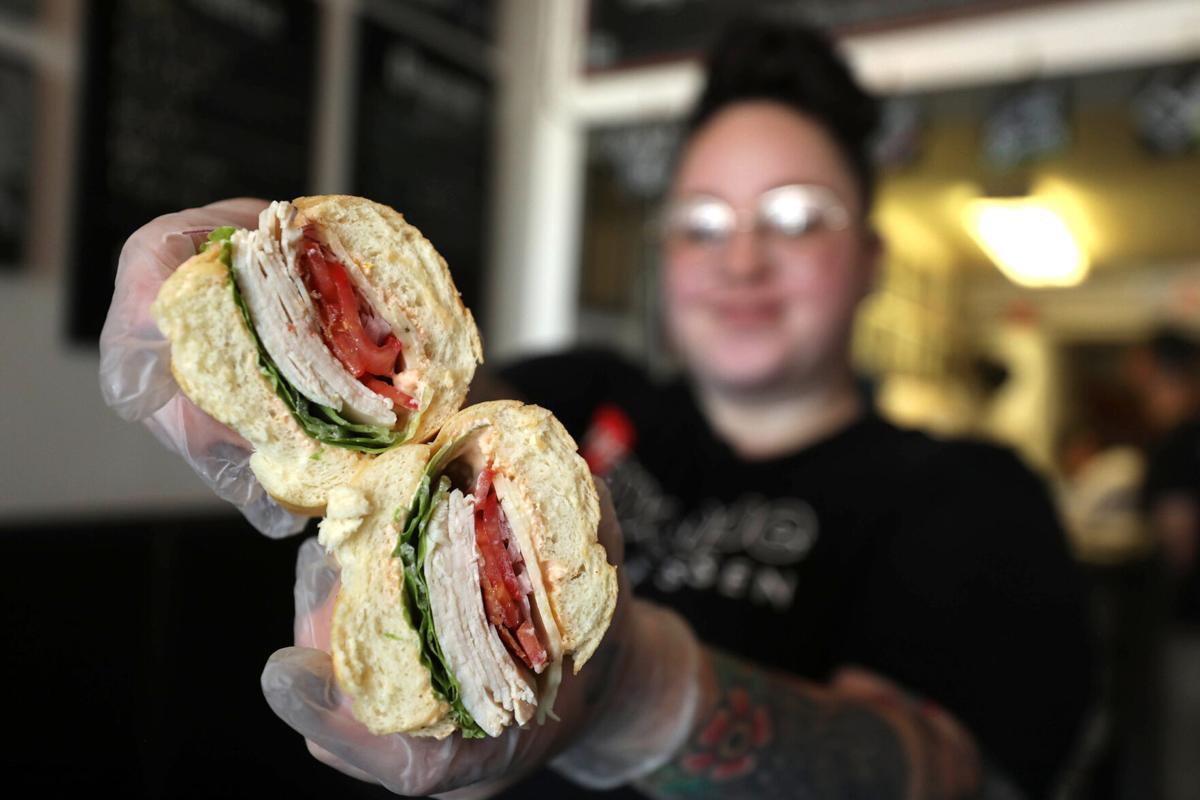One of the first lessons I learned in journalism was to never start a story with a date. I remember my professor telling the class that it’s hardly ever the most important information in a story. But, after COVID changed the world in a matter of days, certain dates took on greater meaning than simply marking a place in the jetstream of time.
For instance, in December 2019, Kylie Myers bought the restaurant where she worked part-time. Her former boss cited financial strain as his central reason for leaving the business, but Kylie has been working in food service since she was 14. Both parties agreed that she was the person to turn the business around.
There’s dramatic irony in leading with the date: we now know something she didn’t. The date is more than a date, but a stand-in for the enormous risk Kylie didn’t know she was taking. In just months, a pandemic would bring the restaurant industry to a complete halt.
The restaurant in question is 4th Avenue Deli, a downtown mainstay that just celebrated its 10th anniversary last week. So now the dramatic irony shifts from her onto us, the readers: how did she do it?
Before she bought the deli, Kylie didn’t ask for her part-time job there: Austin Counts, the owner at the time, had to convince her to join his team while she was working full-time as a bar manager.

Kylie Myers bought 4th Avenue Deli, 425 N. Fourth Ave., just months before the COVID shutdown.
“(Austin is) a musician, as well. I don’t think he plays much anymore. But when I was managing the bar, I would book live music. I came across Austin and he did a blues set with his guitar. I started booking him for the bar once a week or so. He really liked the way I worked and managed the bar. He’d always say, he could really use someone like me at the deli. He kept asking and eventually I thought, I had some free time during the day, and I went over there,” Kylie said.
Kylie had wanted to own a business since she was a teenager. She knew it would be a restaurant in her 20s, when she was working as a bar manager or a shift supervisor, running the restaurant for a paycheck.
When she took over 4th Avenue Deli from Austin, she had a plan on how to make the business more profitable.

Austin Counts owned 4th Avenue Deli before Kylie Myers bought it. The deli was set to close on December 15, 2019, before Kylie made a last-minute purchase to save the Fourth Ave. institution.
“I had a few ideas of my own — especially delivery, online orders, things like that that (Austin) was never interested in doing. Longer hours, too, open seven days a week, rather than five, open late during the school year. I knew I had a big support system here in Tucson as well as in the restaurant industry. I was pretty confident,” Kylie said.
After buying the deli, Kylie took a break over Christmas to get all the paperwork in her name, clean the shop and buy some needed equipment. The deli reopened under her ownership on January 1.

4th Avenue Deli occupies a shotgun-style nook on the iconic street.
“I had two employees who worked for Austin and stayed on with me. Me and my boyfriend at the time was going to help me at the beginning. Four employees starting. It was great. We had a great grand reopening. I introduced a new sandwich. I had mini cannoli bites.
“Everyone wanted to come welcome me to the neighborhood, even though most of them already knew me. The first month was really great — sales were already higher than they were before. I was super happy with my decision,” Kylie said.
“By the second month, we were aware of COVID happening and starting to wear masks and sanitizing things more than we already did, but still not knowing what was happening. Then the shutdown happened.
“Because it was the holiday, St. Patrick’s Day, they had police officers coming down Fourth Avenue letting people know the shutdown is real and you have to close your doors tonight. My employees went home. My boyfriend and I were planning on getting dinner and drinks after work to celebrate my birthday,” Kylie said. “I was feeling really unsure, like I just made the biggest mistake ever.
“I can’t remember if we stayed closed the next day. We stayed closed a day or two after the shutdown, watching the news and trying to stay inside, protect ourselves and protect customers. It took a couple days for me to get my head around everything. I had to put the two employees I had on a furlough. I was going to bring them back as soon as I could.
“We started pushing gift card sales online so people could support our business but come back at a safer time when they could use (them). I gave all the gift card sales to the two employees who weren’t working. And we started pushing to-go stuff. I put a sign on the sidewalk: Take care of each other. To-go only. We’re still here. Delivery available. Fourth Avenue was pretty much a ghost town.
“There was no one walking around, all the bars were closed. It was pretty much just me there from open to close, sitting there, waiting for orders, watching the news. It was definitely a tough time, very slow, especially when people were scared about what was going on.
“When people started understanding what was going on, mask mandate, social distancing, orders started coming in for pickup. People could come in for pickup, just no one sitting inside the store. We did that for probably four months through the summer, just myself, open and closed every day. Sometimes my boyfriend would help relieve me,” Kylie said.

The T-Town at 4th Avenue Deli includes turkey, bacon, green leaf, tomato, red onion, red onion, pepper jack cheese and spicy mayo.
When Kylie remembers this time in her life, like many of us, she remembers being alone all the time.
“I really missed talking to people. Sitting alone and thinking, I haven’t spoken a word out loud all day. It made me sad, worrying about my industry, worrying about all my friends who worked in the industry — bartenders, servers, everyone was scared,” she said.
“There were definitely a few minutes of crying and breaking down in the middle of the deli when nobody was in there. That hasn’t happened since and I don’t plan on it happening again. There were definitely overwhelming moments,” Kylie said.

4th Avenue Deli struggled financially during the COVID shutdown, but owner Kylie Myers worked to turn things around with to-go orders and delivery.
Reconnecting with the community
Though she spent her days completely alone, she still relied on her community for support. Kylie was denied by federal loan programs like PPP. The Fourth Avenue Coalition did what it could, providing care packages with masks, hand sanitizer and laser thermometers. The coalition printed signs that addressed masking and social distancing, two necessary precautions that Kylie was left alone to enforce.
“Luckily, we didn’t have too many issues with customers following the rules and things like that. Just having to tell people to put on their mask or pull up their mask was kind of a strange thing you won’t see again. Just telling people all the time about masks was a strange thing,” Kylie said.
Kylie’s greatest boon came from Austin Counts, the owner who had sold the deli to her just months ago.
“He felt pretty bad, as well,” Kylie said. Austin had pivoted to journalism and connected her with someone at Tucson Foodie to help publicize a sandwich promotion.
“I was giving out free sandwiches to people who were out of work in the restaurant industry or couldn’t work because of the shutdown. So people would come by and ask if I had any pandemic sandwiches,” Kylie said.” I started giving out a few of those for free, probably a couple a day, and that gave me a shoutout and a reputation on the avenue, and I got more support from there.”
With to-go orders and the publicity through her sandwich campaign, Kylie was able to bring back her employees, Travail Hunter and JT Van Huss, by August 2020.
“By that time we had limited capacity, so I could have half of the restaurant full. The deli is super small — I only have four tables, so I could have two tables,” Kylie said.
“It was still very slow, but we were doing a lot of Doordash and Uber Eats orders. Slowly some business started opening up around us with limited capacity and social distancing. Slowly people started coming back to the avenue,” Kylie said.

Sandwich artist Julien Hall cuts a sandwich for a customer at 4th Avenue Deli.
She remembers the slow trickle of people back onto Fourth Avenue with hope.
“Some people you’re seeing for the first time, who you used to see all the time who you haven’t seen in a year. People who have lost people from COVID — sometimes getting back together is talking about loss: loss of people, of income, of jobs. Everybody reconnecting.
“Mostly good emotions, happy — I’d see it on the streets. When a bar finally announces that they’re going to reopen, and everyone shows up, so happy to see you and so happy everyone’s safe. For me, it was such a feeling of community support, strong emotion, overpowering.
“That’s when I realized, I didn’t make a mistake, I made a good choice. This is an industry I want to be in and a community I want to be a part of,” Kylie said.
By December, they had hired a third worker, Daniel Hapgood, and rented a rage room to celebrate getting through the year. Not only did they survive the darkest months of the pandemic, they even made a profit.
Last week, Kylie celebrated 4th Avenue Deli’s 10th anniversary with free cake and a deal on a special sandwich. A line had gathered on Fourth Avenue before the deli opened at 11 a.m. and kept up all day. She saw regulars and friends, workers and owners from neighboring businesses.

Kylie Myers, owner of 4th Avenue Deli, takes a phone order while employees make sandwiches behind her.
“All the businesses in the area were saying congratulations and sharing stuff on social media. They just love the deli. They love seeing the food, everyone in the area relies on us for their lunch. Ten years is a big deal, especially downtown when businesses can come and go,” Kylie said. “It shows that we’re doing something right, and Tucson likes what we’re doing.”
“That’s one of the reasons it’s named 4th Avenue Deli — Austin explained to me, one reason I didn’t want to change the name. He never wanted it to be Austin’s Deli. He wanted it to be 4th Avenue Deli, for the avenue,” Kylie said. “This is your guys’ deli, this is where you get your food.”


